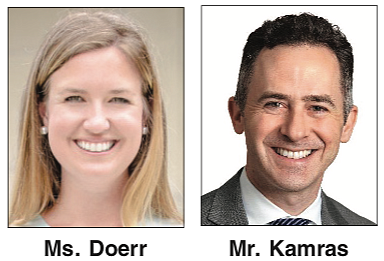School Board, administration thwarted own tenets set up for RPS food service
Jeremy M. Lazarus | 9/30/2021, 6 p.m.
Richmond Public Schools Superintendent Jason Kamras appeared to have undermined a key tenet of the School Board’s approved three-year-old school improvement plan, Dreams4RPS, with decisions about the cafeteria operation and the delivery of food that were made before schools reopened earlier this month.
That tenet involves ensuring students have good food to eat to enable them to have the energy and nutrition needed to be alert in class.
Since the start of school, that has not been the case with parents and students describing offerings as almost inedible. At times, still frozen meals have been passed out to student. Trash baskets often overflow with food students have discarded rather than eat.
Based on documents and information the Free Press obtained, the Kamras administration deliberately did not recruit new workers to fill multiple vacancies among the cafeteria staff, ensuring there were not enough people to operate kitchens.
The administration also did not follow School Board policy requiring a health advisory panel to be involved in the selection of a vendor or follow board guidance to allow student panels to taste-test menu offerings of vendors competing to provide pre-packaged meals.
Mr. Kamras declined to respond to Free Press questions about the food debacle as did Matthew Stanley, RPS director of advocacy and outreach. Mr. Stanley sent an email stating that RPS was unable to respond in a timely fashion to Free Press queries.
The administration is now scrambling to ensure students are getting the food they need, with cafeteria managers required to do daily audits of the pre-packaged meals that Illinois-based Preferred Meals provides to determine if the food is being eaten or thrown out.
Many students are brown-bagging or bringing lunches from home, with a few schools cranking up their cafeteria kitchens to provide alternative offerings.
In a Sept. 10 email obtained by the Free Press as the food issue exploded, Mr. Kamras acknowledged a major shortage of cafeteria staff and admitted that his administration had deliberately not rushed to fill the vacancies. As he put it, the hiring of replacement cafeteria staff was “deprioritized.”
In the email, he also rejected an offer from a staffing company that specializes in providing temporary workers to fill the shortfall until RPS could hire enough people.
As of the date of the email, RPS had 106 vacancies among the 233 cafeteria workers and 11 vacancies among the 45 managers, Mr. Kamras stated.
He explained that his administration was avoiding temporary staffing options due to the pandemic.
“We do not feel a shift of model – which could mean hundreds of additional individuals in our schools – is the appropriate way to proceed given COVID,” Mr. Kamras stated.
He noted that fewer cafeteria staff were supposed to be needed given that an outside vendor had been hired to provide pre-packaged meals that were to be distributed to students through kiosks.
The Free Press has been told that at some schools, security personnel have been tasked with wheeling the meals to classrooms where teachers and students remain during the lunch hour rather than going to the cafeterias.
Breakfasts go out through the kiosks, but shortfalls in bus drivers mean some students arrive so late that they have to rush to class and cannot take time to eat a morning meal.
RPS began advertising last April for vendors to provide meals for the 2021-22 school year, but did not recruit student panels to test vendor offerings.
The Kamras administration also never involved an advisory panel the board set up to focus to improving student health. Helping RPS ensure student access to quality meals is a main responsibility of the panel.
School Board member Liz Doerr, 1st District, who championed the creation of the School Health Advisory Board, is a member of the advisory board, along with School Board member Nicole Jones, 9th District. Ms. Doerr admitted this week in a lengthy post that she had not pushed for the school system to work with SHAB during the vendor selection process.
She wrote that “SHAB should have been engaged. This was a missed opportunity (and demonstrates) a need to strengthen lines of communications” between SHAB and the administration. She did not explain the disconnect.
The selection of Preferred Meals as the vendor continued a relationship that began during the 2020-21school year when the company gained the contract to provide prepared meals that RPS passed out at various schools and delivered by school bus to neighborhoods.
The School Board approved the current contract with Preferred Meals in August. Before the vote, board member Stephanie M. Rizzi, 5th District, questioned whether there had been student taste tests, without apparently getting a specific response.
The board, however, did not check prior to the vote whether the meals the company created and RPS delivered actually were eaten by students and their families. The Free Press has been told that parents and students often did not come to get the school bus delivered meals and that at least a portion went to homeless shelters and other places that serve needy adults rather than allowing them to go to waste
In choosing Preferred Meals, the administration rejected the option of renting cafeteria kitchens to local caterers and restaurants to provide fresh food options for students, one idea that SHAB had advocated.
Preferred Meals, which provides meals to school divisions in multiple states, has defended the food it provided. Company officials noted the contract with RPS did not specify that only cold meals were to be delivered and on many days sent items that needed to be heated.
In her statement, Ms. Doerr noted that holding Preferred Meals accountable is difficult because the contract the board approved with Preferred Meals “is confusing and hard to understand.”







